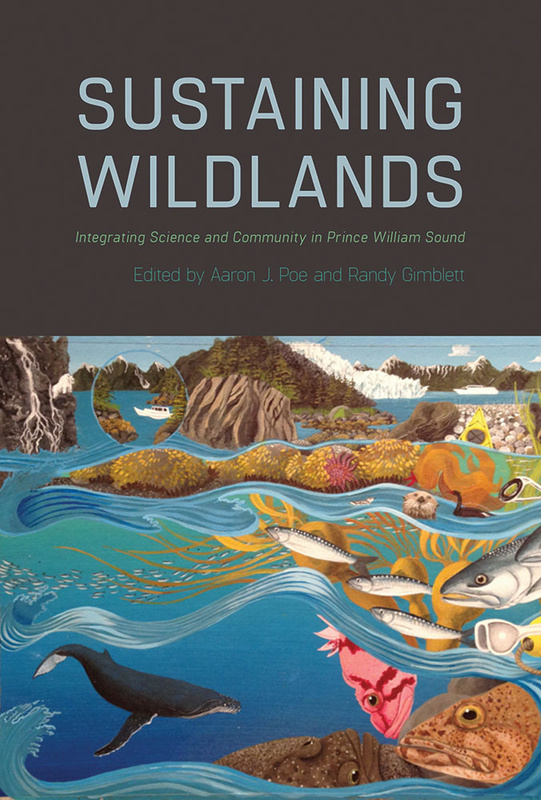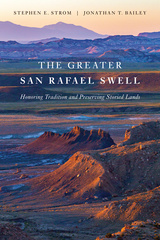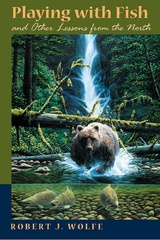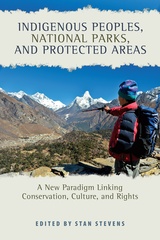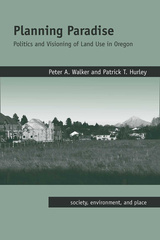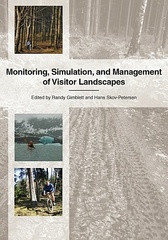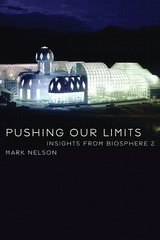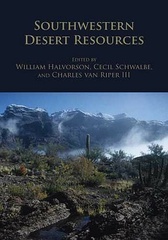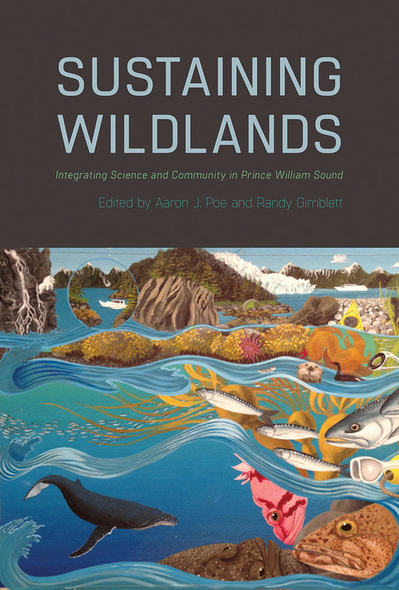
384 pages, 7 x 10
27 b&w illustrations, 43 tables
Hardcover
Release Date:14 Nov 2017
ISBN:9780816535644
Sustaining Wildlands
Integrating Science and Community in Prince William Sound
Edited by Aaron J. Poe and Randy Gimblett
The University of Arizona Press
When the Exxon Valdez oil tanker ran aground on Bligh Reef in Alaska in 1989 and spilled 11 million gallons of oil, it changed Prince William Sound forever. The catastrophe disrupted the region’s biological system, killing countless animals and poisoning habitats that to this day no longer support some of the local species. The effects have also profoundly altered the way people use this region.
Nearly three decades later, changes in recreation use run counter to what was initially expected. Instead of avoiding Prince William Sound, tourists and visitors flock there. Economic revitalization efforts have resulted in increased wilderness access as new commercial enterprises offer nature tourism in remote bays and fjords. This increased visitation has caused concerns that the wilderness may again be threatened—not by oil but rather by the very humans seeking those wilderness experiences.
In Sustaining Wildlands, scientists and managers, along with local community residents, address what has come to be a central paradox in public lands management: the need to accommodate increasing human use while reducing the environmental impact of those activities. This volume draws on diverse efforts and perspectives to dissect this paradox, offering an alternative approach where human use is central to sustaining wildlands and recovering a damaged ecosystem like Prince William Sound.
Contributors:
Brad A. Andres, Chris Beck, Nancy Bird, Dale J. Blahna, Harold Blehm, Sara Boario, Bridget A. Brown, Courtney Brown, Greg Brown, Milo Burcham, Kristin Carpenter, Ted Cooney, Patience Andersen Faulkner, Maryann Smith Fidel, Jessica B. Fraver, Jennifer Gessert, Randy Gimblett, Michael I. Goldstein, Samantha Greenwood, Lynn Highland, Marybeth Holleman, Shay Howlin, Tanya Iden, Robert M. Itami, Lisa Jaeger, Laura A. Kennedy, Spencer Lace, Nancy Lethcoe, Kate McLaughlin, Rosa H. Meehan, Christopher Monz, Karen A. Murphy, Lisa Oakley, Aaron J. Poe, Chandra B. Poe, Karin Preston, Jeremy Robida, Clare M. Ryan, Gerry Sanger, Bill Sherwonit, Lowell H. Suring, Paul Twardock, Sarah Warnock, and Sadie Youngstrom
Nearly three decades later, changes in recreation use run counter to what was initially expected. Instead of avoiding Prince William Sound, tourists and visitors flock there. Economic revitalization efforts have resulted in increased wilderness access as new commercial enterprises offer nature tourism in remote bays and fjords. This increased visitation has caused concerns that the wilderness may again be threatened—not by oil but rather by the very humans seeking those wilderness experiences.
In Sustaining Wildlands, scientists and managers, along with local community residents, address what has come to be a central paradox in public lands management: the need to accommodate increasing human use while reducing the environmental impact of those activities. This volume draws on diverse efforts and perspectives to dissect this paradox, offering an alternative approach where human use is central to sustaining wildlands and recovering a damaged ecosystem like Prince William Sound.
Contributors:
Brad A. Andres, Chris Beck, Nancy Bird, Dale J. Blahna, Harold Blehm, Sara Boario, Bridget A. Brown, Courtney Brown, Greg Brown, Milo Burcham, Kristin Carpenter, Ted Cooney, Patience Andersen Faulkner, Maryann Smith Fidel, Jessica B. Fraver, Jennifer Gessert, Randy Gimblett, Michael I. Goldstein, Samantha Greenwood, Lynn Highland, Marybeth Holleman, Shay Howlin, Tanya Iden, Robert M. Itami, Lisa Jaeger, Laura A. Kennedy, Spencer Lace, Nancy Lethcoe, Kate McLaughlin, Rosa H. Meehan, Christopher Monz, Karen A. Murphy, Lisa Oakley, Aaron J. Poe, Chandra B. Poe, Karin Preston, Jeremy Robida, Clare M. Ryan, Gerry Sanger, Bill Sherwonit, Lowell H. Suring, Paul Twardock, Sarah Warnock, and Sadie Youngstrom
Poe and Gimblett’s beautiful presentation of social science as a critical component of public land management is spot-on. The world’s 7.5 billion heartbeats put serious pressure on our wildlands.’—Abigail R. Kimbell, United States Forest Service Chief Emeritus
‘Provides a solid case study of an important region of the United States and an integrated set of readings on how local interests can be incorporated into landscape-level planning.’—Robert Lilieholm, E. L. Giddings Professor of Forest Policy and CRSF Program Leader, Conservation Lands and Public Values, University of Maine
Aaron J. Poe is the science coordinator for the Aleutian and Bering Sea Islands Landscape Conservation Cooperative, a conservation science partnership between the U.S. Fish and Wildlife Service and other federal agencies, states, tribes, NGOs, universities, and stakeholders.
Randy Gimblett is a professor at the University of Arizona in the School of Natural Resources and the Environment. Working closely with communities and stakeholder groups, he concentrates on recreational and environmental planning and management.
Introduction. L earning from the Sound: Introducing This Place and This Volume
Aaron J. Poe, Ran dy Gimblett, an d Da le J. Blahna
Chapter 1. What Wilderness Gives
Marybeth Holleman
Chapter 2. The Geophysical Setting and Marine Ecology of Prince William Sound
Ted Cooney
Chapter 3. A Brief History of Humans in Prince William Sound
Paul Twardock
Chapter 4. T he Social and Economic Impacts of the Exxon Valdez Oil Spill and a Path Toward Recovery
Aaron j. Poe and Randy Gimblett
Chapter 5. Identifying Landscape Values in Prince William Sound with Public Participation Geographic Information Systems (PPGIS)
Greg Brown
Chapter 6. Integrating Legacy Data to Establish a Spatial and Seasonal Frame for Predicting Human Use Hot Spots in Prince William Sound
Chandra B. Poe and Samantha Greenwood
Chapter 7. Characterizing the Spatial and Temporal Patterns of Recreation Use and Experience Opportunities in the Sound: Perceptions of the Stakeholders
Aaron J. Poe, Randy Gimblett, and Robert M. Itami
Chapter 8. Level of Sustainable Activity (LSA) in Prince William Sound: Understanding and Managing Quality of Experience and Capacity in Wilderness Waterways
Robert M. Itami, Randy Gimblett, and Aaron J. Poe
Chapter 9. Evaluating the Subsistence Service Recovery: Spatial and Temporal Characterization of Prince William Sound Subsistence Harvest Activities
Aaron j. Poe, Randy Gimblett, and Milo Burcham
Chapter 10. Evaluating the Interactions Between Black Bear Hunting and Kayaking Activities in Western Prince William Sound, Alaska
Spencer Lace and Randy Gimblett
Chapter 11. M odeled Distribution of Human Use in 2015 and Potential Wildlife Disturbance in Western Prince William Sound
Lowell H. Suring , Karen A. Murphy, Shay Howlin, and Karin Preston
Chapter 12. Characterizing the Effects of Increased Recreation Use on Wildlife Within the Sound
Lo well H. Suring an d Aaron J. Poe
Chapter 13. Spatial Relationships Between River Otter (Lontra canadensis) LatrineSites, Shoreline Features, and Human Activity, Prince William Sound, Alaska
Jessica B. Fraver
Chapter 14. Flush Responses of Two Species of Sea Ducks to Kayakers in Prince William Sound, Alaska
Laura A. Kennedy
Chapter 15. B lack Oystercatchers and Shoreline Campsites in Prince William Sound
Aaron J. Poe, Michael I. Goldstein, Brad A. Andres, and Bridget A. Brown
Chapter 16. Campers’ Perceptions of Wilderness and Campsite Hardening in Blackstone Bay, Prince William Sound, Alaska
Maryann Smith Fidel and Paul Twardock
Chapter 17. T rends and Characteristics of Campsite Conditions in Prince William Sound
Paul Twardock and Christopher Monz
Chapter 18. Sound Stories: Understanding Prince William Sound Through the Stories of Those Who Live There
Sara Boario , Aaron J. Poe, Chris Beck, Tanya Iden, and Lisa Oakley
Chapter 19. T oward Sustainable Human Use Management in Prince William Sound: A Synthesis of Data and Management Recommendations
Aaron J. Poe, Courtney Brown, Da le J. Blahna, Clare M. Ryan, and Randy Gimblett
Conclusion. What We’ve Learned from the Sound: A Broader Perspective on Sustainable Human Use of Wildlands
Aaron J. Poe, Ran dy Gimblett, an d Da le J. Blahna
References
Contributors
Index

